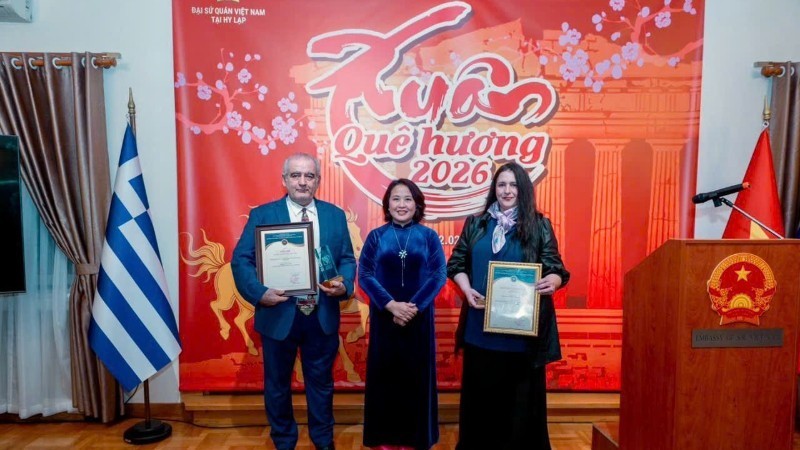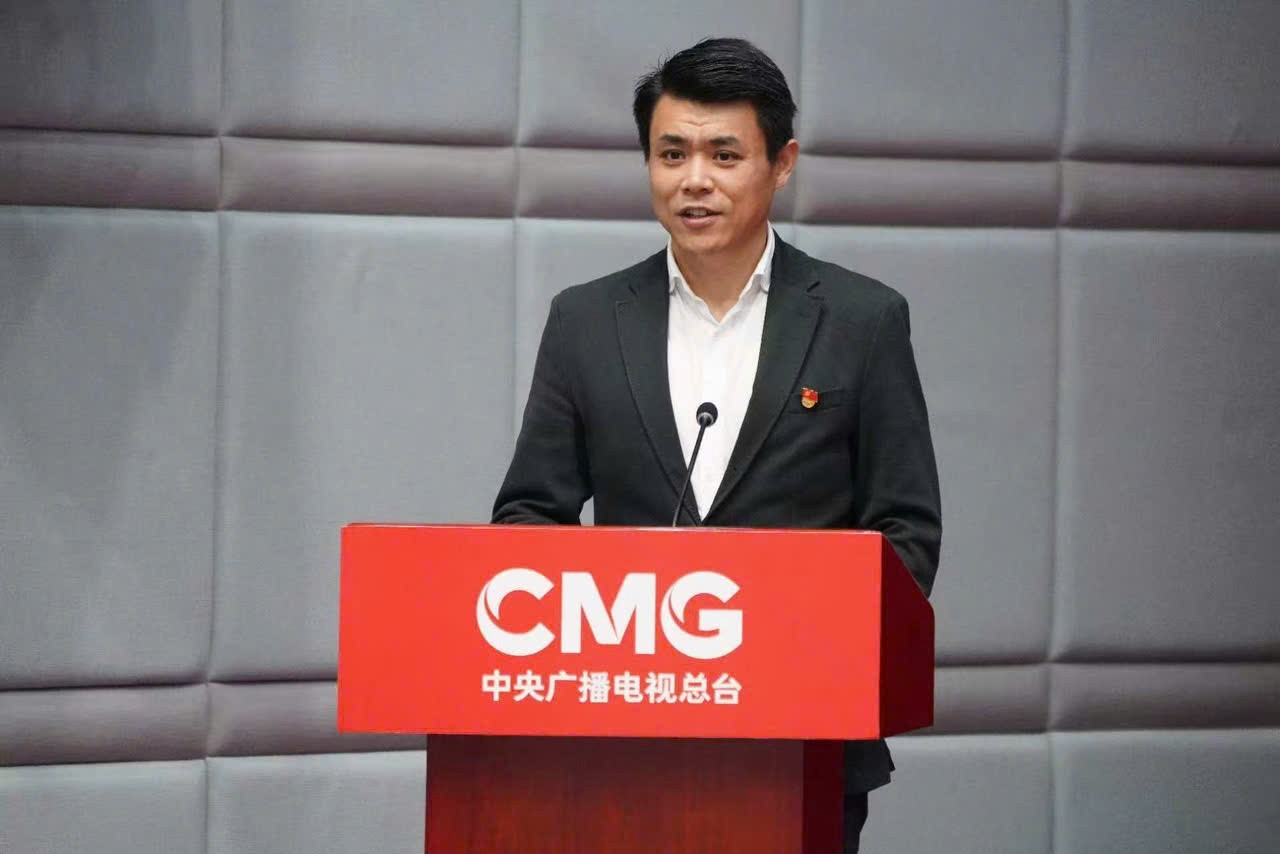OVs Submit over 1,300 Comments on Party Congress's Draft Political Report
| AI Accompanies Overseas Vietnamese Children in Nurturing Their Love for Vietnamese Language | |
| Vietnamese Abroad Urge Reforms in Private Sector, Education, and People-to-People Diplomacy |
- The draft Political Report of the 14th National Party Congress notes that work related to overseas Vietnamese has been implemented more actively and effectively. Could you provide further assessment on this?
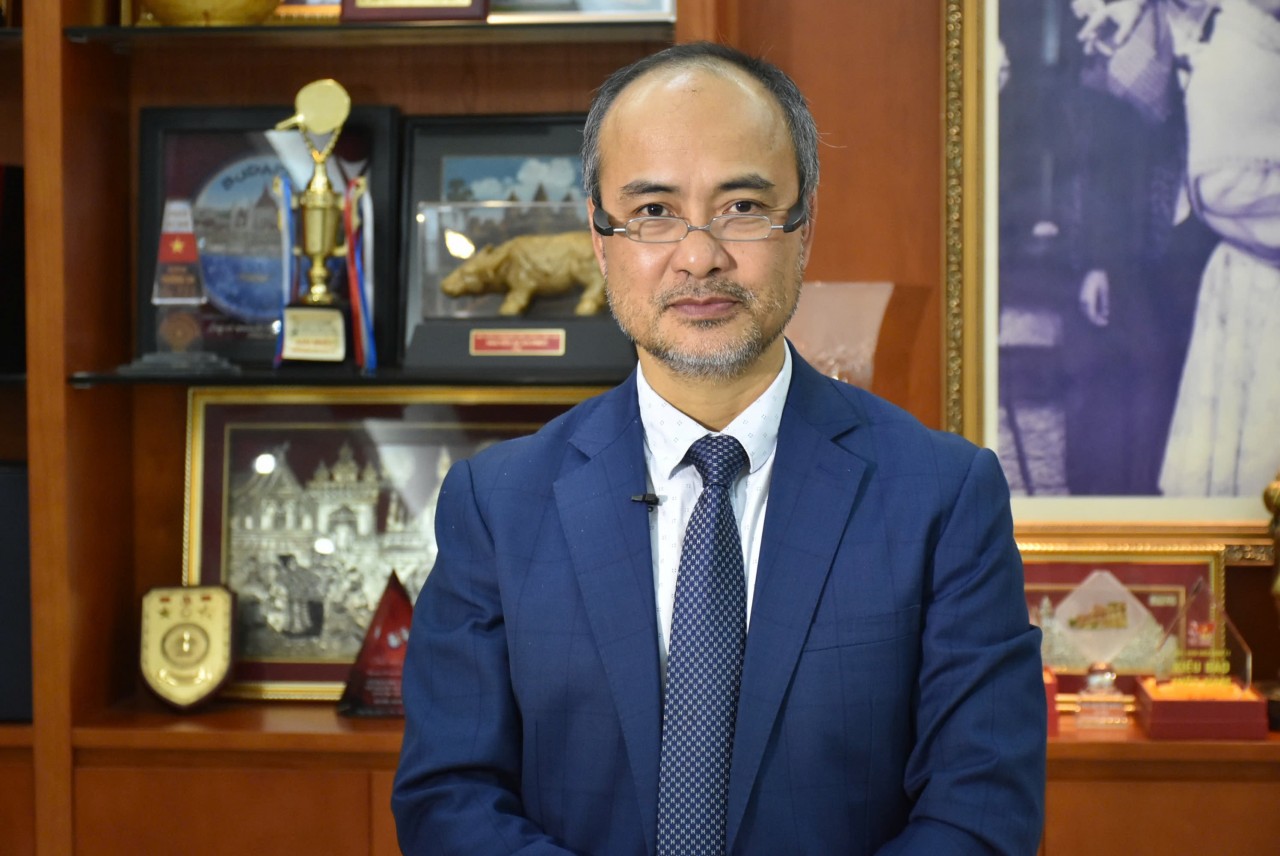 |
| Nguyen Trung Kien, Chairman of the State Committee for Overseas Vietnamese. (Photo: SCOV) |
During the past term, efforts concerning overseas Vietnamese have achieved many notable results, reflecting a new development both in thinking, approach, and practical effectiveness. While policies in the past primarily focused on mobilization, they have now shifted strongly toward creating mechanisms, environments, and favorable conditions that enable overseas Vietnamese to play a proactive role, collaborate, and directly contribute meaningfully to the country.
At the same time, the Party and State have placed special emphasis on activities aimed at ensuring the material and spiritual well-being of overseas Vietnamese communities, particularly in preserving and promoting cultural identity and the Vietnamese language, supporting integration in host countries, and strengthening community solidarity. These efforts have helped establish a solid foundation for overseas Vietnamese to stabilize their lives, maintain strong ties with their homeland, and thereby maximize their potential, intellect, and dedication in the cause of national construction and development.
It is precisely thanks to these achievements that the close attention and guidance of the Party and State’s top leaders have become an especially important source of encouragement for overseas Vietnamese. In their speeches, annual Tet messages to the Vietnamese community abroad, and during their working visits and meetings with overseas communities, the General Secretary, the State President, the Prime Minister, and the Chairman of the National Assembly have consistently affirmed that Vietnamese people, whether living inside or outside the country, are all descendants of the same roots and an inseparable part of the nation. This attention has become a profound source of motivation, strengthening the trust, affection, and aspiration of overseas Vietnamese to remain connected with their homeland.
The issuance of Conclusion No. 12-KL/TW by the Politburo on August 12, 2021, and Resolution No. 169/NQ-CP by the Government on December 31, 2021, marked significant milestones. They reaffirm that the overseas Vietnamese community is an inseparable part of the Vietnamese nation, a valuable national resource, and an important factor contributing to strengthening Vietnam’s relations and cooperation with other countries. These documents represent both continuity and new progress in the Party and State’s policies, aligning with Vietnam’s deepening international integration.
In this spirit, agencies across the political system have continuously renewed their approaches, improved content, and enhanced the effectiveness of their work. Citizen protection and legal assistance efforts have been carried out proactively and promptly, clearly reflecting a people-centered orientation.
Significant progress has also been made in preserving the Vietnamese language and cultural identity through Vietnamese-language classes, the “Vietnamese Bookshelf” program, and various community cultural activities that have expanded across many countries and regions. Efforts to connect with, attract, and leverage the resources of overseas Vietnamese intellectuals, experts, and entrepreneurs have been broadened, with a focus on priority areas such as science and technology, innovation, digital transformation, education, and healthcare.
In addition, coordination between ministries, sectors, and localities and the State Committee for Overseas Vietnamese has become increasingly close and effective, helping to further promote the policy orientation that places overseas Vietnamese at the center. Numerous models and initiatives launched by overseas Vietnamese have been connected with domestic partners and supported for implementation. A growing number of overseas Vietnamese experts and intellectuals are engaging in policy formulation, providing strategic development advice, and accompanying Vietnam in activities related to innovation, start-ups, and the training of high-quality human resources.
These achievements affirm the consistent stance and deep attention of the Party and State leadership, while also reflecting the trust, affection, and strong desire of overseas Vietnamese to stay connected with the homeland. In the coming period, as the Documents of the 14th National Party Congress continue to emphasize the task of promoting the strength of great national unity, including the overseas Vietnamese community, work related to overseas Vietnamese will be carried out more comprehensively and substantively. This will contribute positively to the goals of national development and the rapid, sustainable growth of the overseas Vietnamese community in the new era, thereby enhancing the prestige and image of Vietnam and its people on the international stage.
- Could you share the comments contributed by overseas Vietnamese to the draft Political Report of the 14th National Party Congress?
The consultation process for overseas Vietnamese regarding the draft Political Report submitted to the 14th National Party Congress has been carried out extensively. To date, more than 1,300 comments have been received from Vietnamese communities across all continents. The consultation work has been conducted methodically and flexibly, combining both in-person and online formats through Vietnam’s overseas missions, associations of overseas Vietnamese, expert networks, and digital platforms, to ensure that every voice of the overseas Vietnamese community is heard and duly acknowledged.
The opinions contributed by overseas Vietnamese, through associations, professional networks, groups of experts, intellectuals, entrepreneurs, students, and women, reflect a strong sense of responsibility, trust, and aspiration to contribute to the homeland. Their feedback vividly demonstrates the enduring affection and attachment of our compatriots abroad to the Fatherland. All contributions express confidence, heartfelt sentiments, civic responsibility, and a shared desire to accompany the nation’s development, viewing the opportunity to comment on the draft Documents as a meaningful way to demonstrate patriotism and the collective wisdom of the global Vietnamese community.
Overall, overseas Vietnamese assessed the draft Political Report as having high quality and strong strategic vision, with clear coherence across the three key areas of economic development, social development, and Party building. Many contributors welcomed the shift in leadership thinking, noting that for the first time, four major reports have been consolidated into a single Political Report, and that an Action Programme has been incorporated directly into the Report, reflecting a genuine commitment to “matching words with deeds.”
Regarding the Congress’s theme, overseas Vietnamese expressed strong unity and broad consensus, viewing it as a concise and clear message that embodies the nation’s development aspirations and the spirit of great national solidarity.
Regarding development orientations, overseas Vietnamese highly valued the new directions outlined in the draft, particularly the emphasis on the three strategic pillars of science and technology, innovation, and digital transformation, seen as the core drivers of a new development model. They proposed, among other recommendations, formulating a national strategy on talent and innovation to better connect domestic and overseas intellectual resources; institutionalizing a “knowledge repatriation” policy to encourage Vietnamese experts abroad to contribute to national development; introducing mechanisms to protect those who dare to think and act; and fostering a national innovation ecosystem, including regional and national R&D centers.
On external affairs and international integration, many contributors underscored that the nearly 6.5 million Vietnamese abroad constitute a strategic resource and a form of soft power for the country in global integration and people-to-people diplomacy. Recommendations focused on strengthening coordination between Vietnamese representative missions and overseas associations; promoting the role of overseas Vietnamese in cultural and scientific diplomacy and in advancing Vietnamese values; and developing a network of “People’s Envoys” to help showcase a creative, humane, and globally integrated Vietnam.
Regarding external affairs and international integration, many contributors emphasized that the nearly 6.5 million overseas Vietnamese represent a strategic resource and a form of soft power for the country in global integration and people-to-people diplomacy. Recommendations focused on strengthening coordination between Vietnamese representative missions and overseas associations; enhancing the role of overseas Vietnamese in cultural, scientific, and values-based diplomacy; and developing a network of “People’s Envoys” to promote the image of a creative, humane, and globally integrated Vietnam.
With respect to policies for overseas Vietnamese, the majority of opinions expressed strong agreement with the spirit of the Draft, reaffirming that the overseas Vietnamese community is an inseparable part of the Vietnamese nation and an important national resource. Contributors offered specific recommendations, including: creating a stable legal framework to support integration and contributions by overseas Vietnamese; expanding Vietnamese-language teaching and learning and preserving cultural identity; accelerating administrative reform and digitalization of public services; developing exchange programs, scholarships, and internships for overseas Vietnamese youth and students; and establishing a global network of Vietnamese intellectuals, entrepreneurs, and experts that is closely connected with localities across the country.
It can be said that the contributions of overseas Vietnamese combine both theoretical insight and practical relevance, reflecting their confidence in the country’s reform path. They also express the expectation that the 14th National Party Congress will continue to affirm the role of the Vietnamese diaspora in the nation’s development strategy, helping to strengthen national solidarity and promote Vietnam’s values and image on the international stage.
- Do you have any expectations you would like to share ahead of the 14th National Party Congress?
The 14th National Party Congress is a milestone of special significance, taking place at a time when our country is entering a new phase with the aspiration to enter a new era of development, becoming a developed, high-income country by the mid-21st century.
Looking back at the nation’s history, we see more clearly the significance of the present moment. After 1975, the country entered a difficult but also very proud period of recovery and reconstruction, laying the foundation for peace and unity. The period after 1986 and the following years was a major turning point in the renovation process, opening up a new development mindset, creating a foundation for the country to gradually integrate, grow, and affirm its position in the international arena.
Today, Vietnam stands before a historic opportunity to enter a new era of development, one defined by innovation, digital transformation, the knowledge economy, and deeper global integration. With seven important resolutions recently adopted by the Party Central Committee, together with the upcoming Resolution of the 14th National Party Congress and those to come in the future, we have ample basis to place confidence in a strong and coherent policy framework capable of driving the nation toward its 2045 vision of becoming a high-income, developed country.
The overseas Vietnamese community always follows and places high expectations on the Congress, because each decision of the Party is closely linked to the future and position of the country, which is also the future and pride of nearly 6.5 million Vietnamese people living around the world.
We firmly believe that the 14th National Party Congress will continue to affirm and advance the Party’s spirit of innovation, strategic vision, and leadership capacity, setting forth sound and breakthrough policy directions that build on tradition while opening new development pathways suited to the era. The Congress is not only an occasion to review the journey so far, but also a powerful call to awaken the national aspiration for progress, including among Vietnamese communities overseas.
We believe that our compatriots across the globe will continue to look toward the homeland with deep affection, steadfast faith, and a commitment to accompany the Party and State in the cause of building and safeguarding the nation. We hope the 14th National Party Congress will continue to place the Vietnamese people, both at home and abroad, at the center of all development policies; and further inspire creativity, solidarity, and the will to rise, so that Vietnam can develop rapidly and sustainably, integrate more deeply, and project its values strongly in the new era.
- Thank you very much.
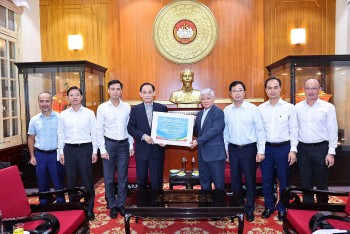 | VND 12 Billion from Ministry of Foreign Affairs and Overseas Vietnamese Donated to Flood-Affected Areas On October 16, the Vietnam Fatherland Front Central Committee (VFFCC) received VND 12 billion contributed by the Party Committee of the Ministry of Foreign Affairs ... |
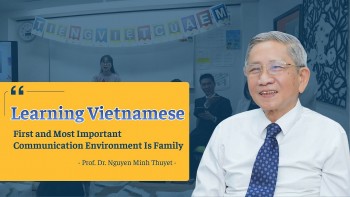 | Learning Vietnamese: First and Most Important Communication Environment Is Family These are the insights shared by Prof. Dr. Nguyen Minh Thuyet, Chief Editor of the 2018 General Education Curriculum, aimed at enhancing the effectiveness of ... |
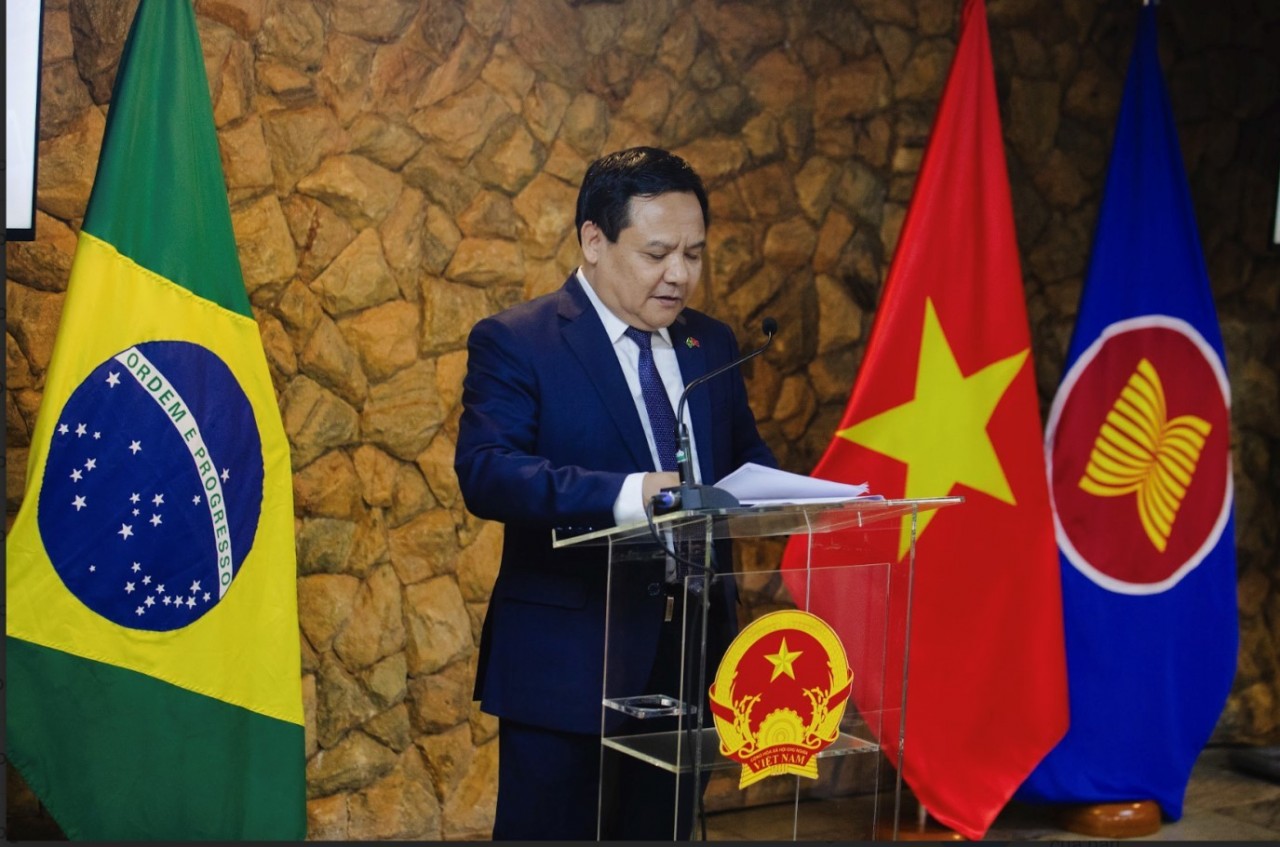 National
National
Brazilian Politicians and Scholars Honor the Historical Role of the Communist Party of Vietnam
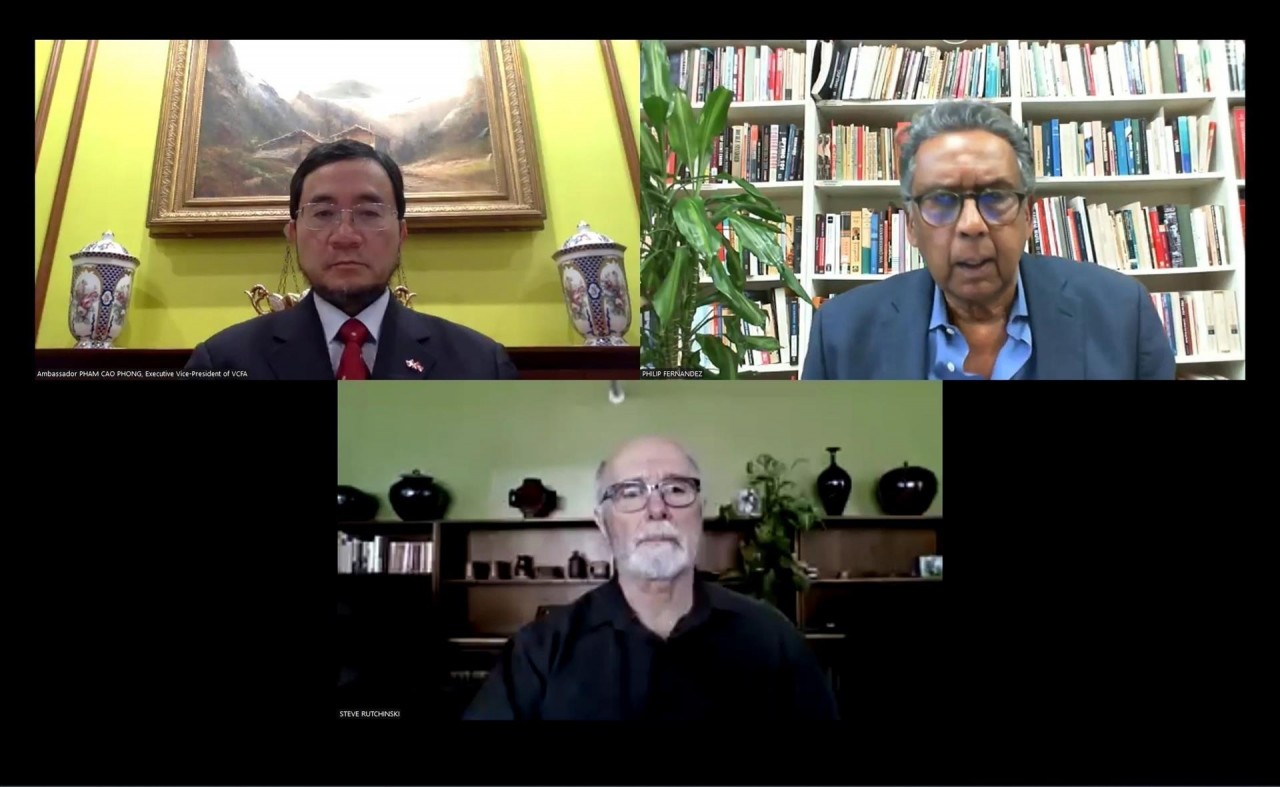 National
National
Canadian Friends Highlight Significance of 14th National Congress of Communist Party of Vietnam
Recommended
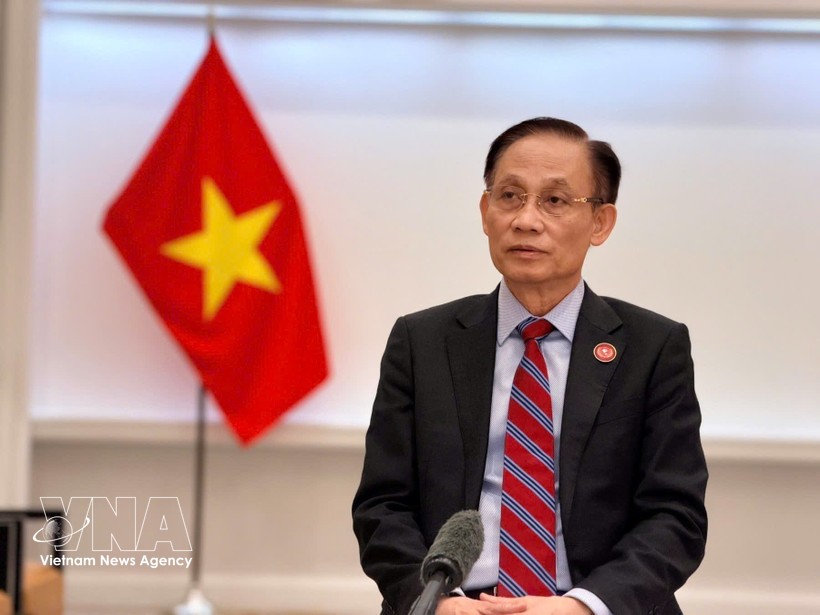 National
National
Party Chief’s US Trip Marks Milestone in High-level Multilateral Diplomacy: FM
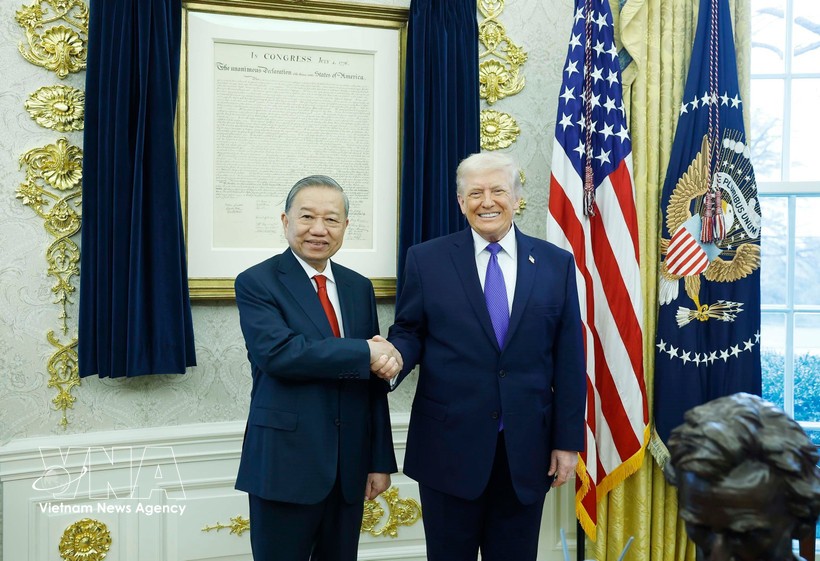 National
National
Party General Secretary To Lam Meets US President Donald Trump at White House
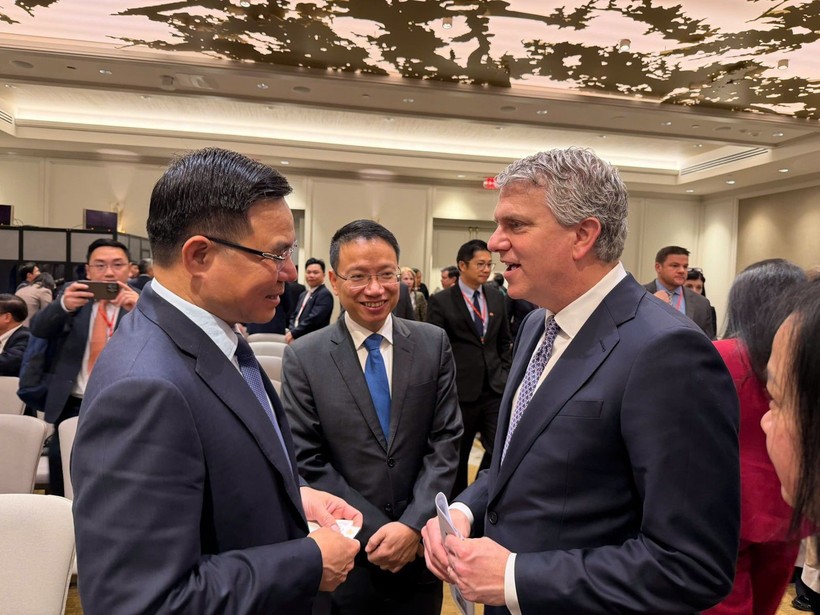 National
National
Vietnam News Today (Feb. 21): Vietnam, US Step Up Dialogue to Facilitate Trade Ties
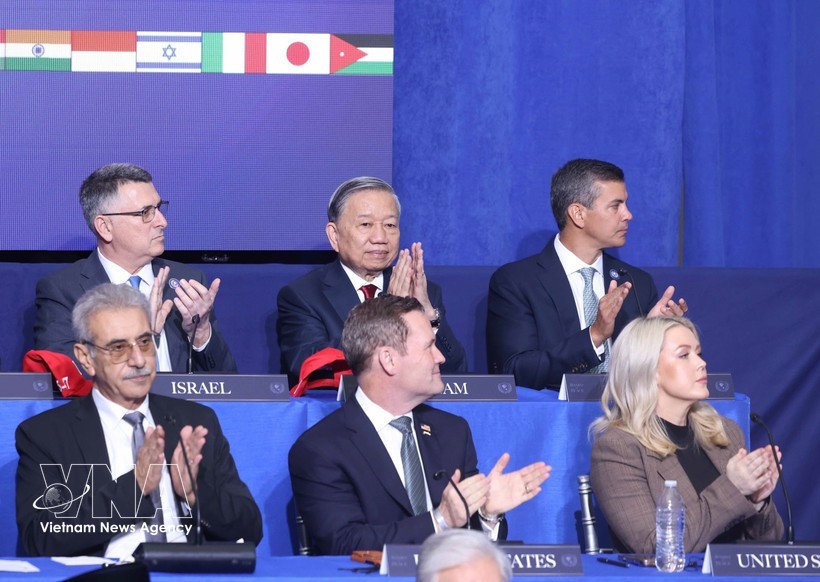 National
National
Party General Secretary To Lam Attends Inaugural Meeting of Gaza Board of Peace in US
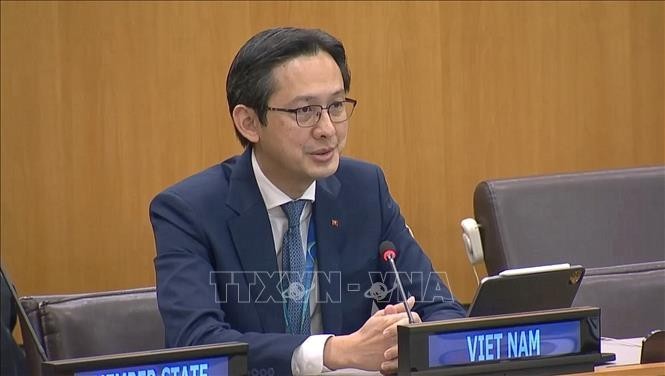 National
National
Vietnam Promotes Multilateral Dialogue on Nuclear Non-proliferation Ahead of the 2026 NPT Review Conference
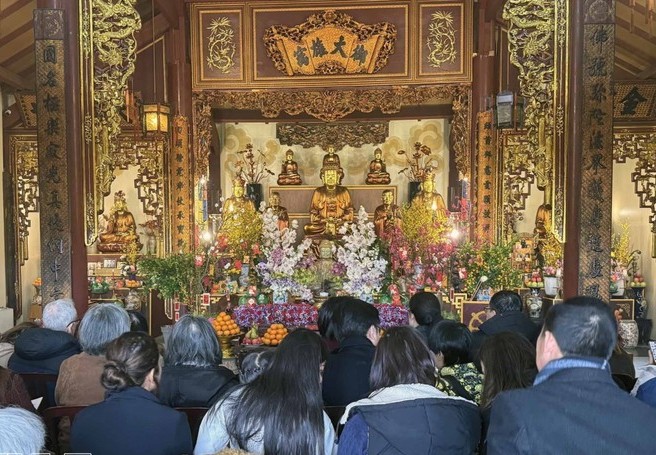 National
National
Vietnam News Today (Feb. 19): Vietnamese in France Cherish Traditional Practices During Tet
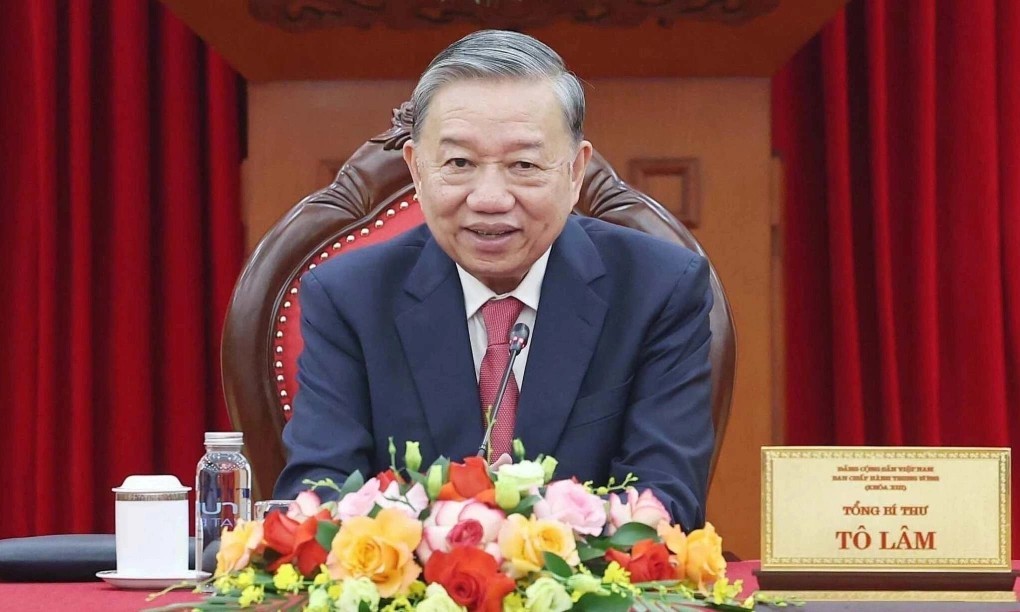 National
National
General Secretary To Lam to Attend Inaugural Meeting of the Gaza Peace Council in the United States
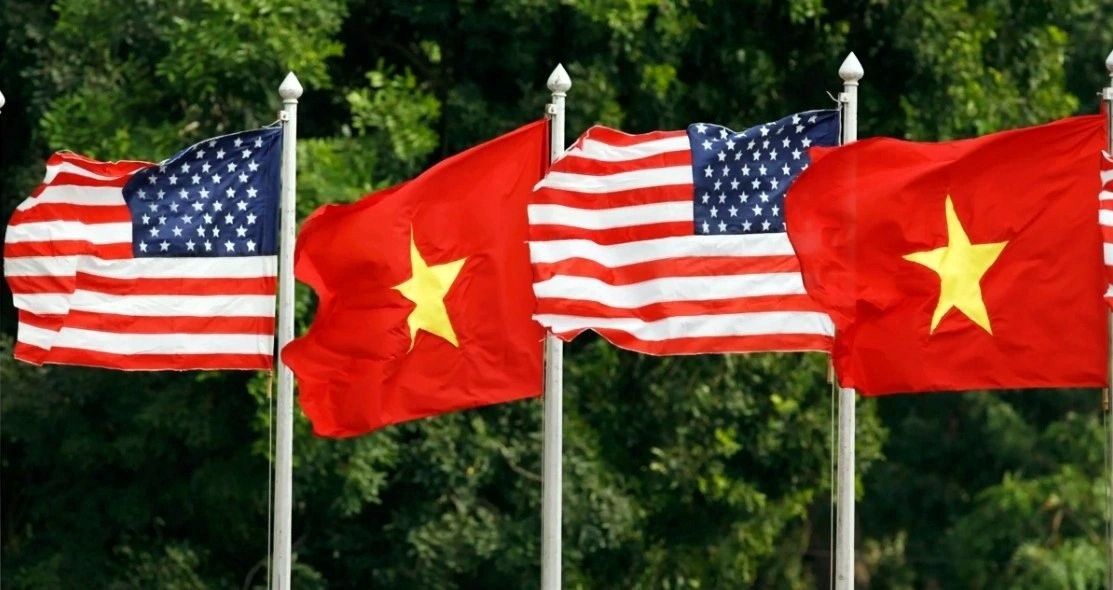 National
National

